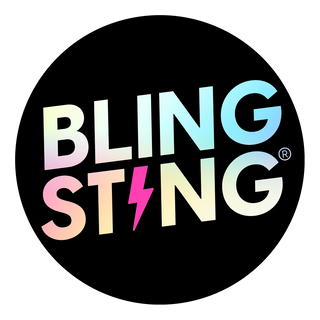Based on the latest sources, North Carolina has seen a surge in violent crimes, and with a reported 43,000 violent crimes a year, being aware of ways to defend yourself is a must. This blog will show you legal ways to do that. Keep reading to learn more!
Table of Contents
- Table of Contents
- Non-Lethal Self-Defense Tools in North Carolina
- Guide to Lethal Self-Defense Weapons
- Laws on Self-Defense in North Carolina
- Conclusion
- FAQs
- 1. What weapons can I legally use for self-defense in North Carolina?
- 2. Can I use any force necessary when defending myself in North Carolina?
- 3. Is there a risk of being prosecuted if I defend myself with a weapon in NC?
- 4. Are all types of knives considered legal for self-defense in North Carolina?
- 5. What should I do if charged with a crime after defending myself?
- 6.What role does 'duty to retreat' play in North Carolina's Self Defense
Key Takeaways
- In North Carolina, you can use pepper spray and electroshock weapons like stun guns for self-defense without a permit. But you can't carry more than 4 ounces of pepper spray.
- Personal alarms are legal tools in North Carolina that make a loud noise to scare attackers away and draw attention for help. They are easy to carry and work well with other defense methods.
- To carry a hidden gun, people need a concealed carry permit which requires taking a safety course. There are rules on where guns cannot be taken, such as schools or government buildings.
- The state's laws allow the use of deadly force in serious situations like home intrusions but require the threat to be real and immediate.
- North Carolina's "Castle Doctrine" says you don't have to run away before using force if someone threatens you at home, in your car, or at work. This is part of the law that supports self-defense actions when needed.
Non-Lethal Self-Defense Tools in North Carolina
In North Carolina, people use non-deadly items to protect themselves. Items like defense sprays and electroshock weapons keep you safe without causing lasting harm.
Use of Pepper Spray
Pepper spray is a common choice for self-defense. North Carolina law allows people to carry it for protection. This spray uses oleoresin capsicum, a powerful ingredient that causes extreme discomfort when sprayed in the face of an attacker.

It can stop someone without causing lasting harm.
People choose pepper spray because it's easy to use and carry around. You can find it in many sizes, perfect for your pocket or purse. Before using pepper spray, get familiar with how it works.
Practice makes you ready if you ever need to defend yourself.
North Carolina does not require a permit to carry pepper spray. Yet, there are rules about how much you can have on you. The state says you can't carry more than 5 ounces or 150cc of this defense tool.
Staying within this limit helps ensure that pepper sprays are used safely and only for self-protection.
Operating Stun Guns and Tasers
Operating stun guns and Tasers is legal in North Carolina for self-defense. These tools can stop an attacker without causing lasting harm. You do not need a permit to have a stun gun or Taser in your home or on the go.
This makes them good choices for many people.
Stun guns use electricity to shock and briefly disable someone. It's important to know how to use these devices safely and effectively.

Next, let's look at the benefits of personal alarms as another safe option for self-defense.
Benefits of Personal Alarms
Personal alarms make a loud noise to catch others' attention during emergencies. They help people feel safe because they can quickly call for help without fighting. These tools are good for anyone who wants to stay away from danger.
How loud is this seemingly tiny self-defense weapon? It is as loud as a chainsaw - yes THAT loud.
You can carry them easily in your pocket or bag. If someone tries to harm you, setting off the alarm might scare them away. This way, you may not have to get into a physical fight.
These alarms also work well with other ways of keeping yourself safe, like knowing self-defense moves or carrying pepper spray (legal in NC). Since they're legal and non-deadly, personal alarms give an extra layer of security without breaking any laws in North Carolina.

This is important because it means using one should not lead to criminal defense issues like more violent methods might.
Guide to Lethal Self-Defense Weapons
Knowing what lethal self-defense tools you can legally use is key. This section talks about guns and rules on using deadly force to protect yourself.
Firearms and Concealed Carry Regulations
North Carolina has specific rules for carrying firearms. People need a concealed carry permit to carry hidden guns. To get this permit, you must take a safety course on using guns.
This is important for keeping everyone safe. You can't just carry a gun anywhere you want. Some places are off-limits, like schools or government buildings.
The law also talks about "stand your ground" and "castle doctrine." These rules let people use guns to protect themselves in their homes, cars, or jobs without having to run away first.
But there's a catch - you can only do this if you truly think you're in danger.
Fanney Law Office, PLLC and King Law can help with questions about these laws. They know all about self-defense and gun laws in North Carolina. If someone faces charges for using a gun for protection, these offices offer free advice on what to do next.
Laws on Deadly Force
In North Carolina, laws are clear about using deadly force. You can use it if you need to stop someone from really hurting you or someone else. This means if you think someone is about to kill you or cause serious harm, the law allows you to protect yourself.
According to N.C.G.S. §14-51.3 and §14-51.2, this kind of force is okay in certain situations.
The court needs strong proof that a person did not act in self-defense when they used deadly force. If there's an intruder at your home wanting to hurt you, the law says it's okay to defend yourself with serious force.
Next let's look into what across-the-board defense rules North Carolina has for its people.
Laws on Self-Defense in North Carolina
North Carolina laws say you can protect yourself if needed. The Castle Doctrine makes this clear. It says you can use deadly force to defend your home, car, or work without running away first.
This law helps when you face big harm or death threats.
Self-defense is a solid legal reason in court here. Laws think you did right when protecting yourself in danger. But, your action must look reasonable to others too. There's no need to run away if someone tries to seriously hurt you or kill you.
In these cases, juries and lawyers play big roles. They decide if the force was just right under the law. If yes, these laws can shield people from being charged with a crime for defending themselves or others.
Conclusion
Knowing your rights and options for self-defense in North Carolina is key. You can use things like pepper spray or stun guns to protect yourself without causing lasting harm. If needed, you also have the right to carry more serious weapons, following strict rules.
The laws support defending yourself or others if necessary. Always make sure your actions are reasonable and within legal limits. Understanding these laws helps keep you on the right side of safety and law.
FAQs
1. What weapons can I legally use for self-defense in North Carolina?
In North Carolina, you're allowed to carry certain types of weapons for self-defense. These include pepper spray (also known as oleoresin capsicum or OC spray), stun guns, and pocket knives.
2. Can I use any force necessary when defending myself in North Carolina?
North Carolina's "Stand Your Ground" laws state that you have the right of self-defense with no duty to retreat. However, the law only permits reasonable force - using a deadly weapon could lead to criminal prosecution unless it was necessary to prevent serious harm or death.
3. Is there a risk of being prosecuted if I defend myself with a weapon in NC?
Yes, even though you have the right of self-defense under NC law, misuse of deadly weapons could make you subject to trial by jury and potential guilt verdicts for crimes like manslaughter or murder.
4. Are all types of knives considered legal for self-defense in North Carolina?
Not all types! Pocket knives are typically permitted but other dangerous weapons such as Bowie knives and daggers might not be seen as reasonable force unless used during an unlawful entry or robbery.
5. What should I do if charged with a crime after defending myself?
If facing criminal charges following an act of self defense, seek legal counsel immediately from experienced defense lawyers who specialize in criminal law cases within Wake County or your specific area.
6.What role does 'duty to retreat' play in North Carolina's Self Defense Laws?
In contrast to some states where there is 'duty to retreat', North Carolina implements 'stand your ground' laws which means individuals are not required to flee before resorting to defensive violence against threats.





